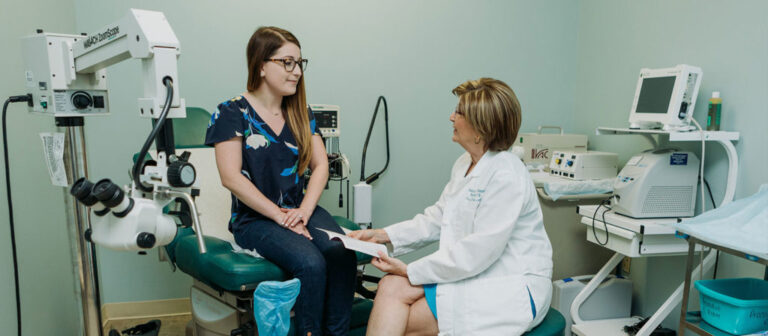Visiting a doctor Las Vegas for the first time can bring about a mix of emotions—anxiety, curiosity, and even a little nervousness.
Knowing what to expect can make the process smoother and more comfortable, whether it’s a routine checkup, a specific health concern, or a long-overdue appointment. Here’s a simple breakdown of what typically happens during your first visit to a doctor.
Warm Welcome and Registration
The experience begins as soon as you walk into the clinic. The reception staff usually greets you and asks for some basic details. If you’re a new patient, be prepared to fill out a registration form.
This form typically asks for your personal details, medical history, allergies, current medications, and any specific concerns you might have.
If it’s a private or specialty clinic, you might also need to provide insurance information. Being prepared with these documents can help accelerate the process.
The reception area is a great place to ask any initial questions, such as the expected waiting time or the next steps in the process.
Meeting the Doctor
Once it’s your turn, you’ll be guided to the doctor’s office or examination room. This is where you’ll have your first face-to-face conversation with the doctor.
They’ll likely start by introducing themselves and asking about the purpose of your visit. Don’t hesitate to explain your symptoms or concerns openly; the more information you provide, the better they can assist you.
Doctors are trained to make you feel at ease, so if you’re unsure how to describe your issue, don’t worry—they’ll ask guided questions to help clarify things.
This initial discussion is the foundation for understanding your health needs and establishing trust with your physician.

Discussing Your Medical History
One key component of a first visit is reviewing your medical history. The doctor will inquire about your medical history, including any previous illnesses, surgeries, or chronic conditions.
They’ll also inquire about your family’s medical history, which can offer important clues about genetic predispositions to certain conditions.
If you’re taking any medications, bring a list of them. This information helps the doctor understand your health background and make informed decisions about your care.
Even details that might seem small to you, like allergies or previous adverse reactions to treatments, are essential for the doctor to know.
Physical Examination
After the initial discussion, Direct Care Las Vegas may conduct a basic physical examination. This step varies depending on the nature of your visit but often includes checking your vital signs—blood pressure, pulse, temperature, and respiratory rate. They might also look at your eyes, ears, and throat and listen to your heart and lungs using a stethoscope.
If your visit is for a specific concern, such as a persistent cough or a skin rash, the doctor will focus on that area.
Don’t be shy about asking questions during this part of the process; understanding what’s happening can help ease nervousness.
Diagnostic Tests or Referrals
Depending on your symptoms or health concerns, the doctor might recommend diagnostic tests such as blood work, X-rays, or other imaging studies.
These tests provide a deeper insight into your condition and help craft an accurate treatment plan. Some clinics have in-house facilities for these tests, while others might refer you to a specialized lab.
The doctor might also refer you to a specialist for further evaluation in certain cases. For example, if your concern involves joint pain, you might be directed to an orthopedic specialist. Rest assured, these referrals aim to ensure you get the best possible care for your specific needs.
Developing a Treatment Plan
Once the doctor has gathered all necessary information, they’ll discuss a treatment plan tailored to your needs. This may involve lifestyle adjustments, prescribed medications, or attending follow-up appointments. The doctor will also explain the rationale behind the treatment and what outcomes you can expect.
If you have any doubts or don’t fully understand the plan, don’t hesitate to speak up. Doctors value open communication and are happy to clarify things. Understanding your treatment is key to following it effectively.
Addressing Your Concerns
The doctor typically ends the session by asking if you have any additional questions or concerns. This is your chance to raise anything that might not have been covered earlier.
Feel free to ask about medication side effects, diet changes, or when to expect results from diagnostic tests.
If you think you might forget important details during the visit, taking notes or asking for written instructions is a good idea. Many clinics also provide online patient portals where you can access your records and follow-up instructions.
Scheduling Follow-Ups
Before leaving, you might need to schedule a follow-up appointment, especially if your treatment involves ongoing monitoring or multiple visits. The reception staff can help you set a convenient time.
If you’ve been referred to a specialist or asked to complete diagnostic tests, ensure you understand the next steps and how to proceed.
Conclusion
Your first visit to a doctor marks the beginning of a partnership aimed at improving or maintaining your health. It’s normal to feel a bit overwhelmed by all the information, but remember, the doctor is there to guide you every step of the way.
As you leave Partida Corona Medical Center, you should feel more informed, reassured, and equipped to take the necessary steps for your well-being.
By understanding what to expect, you can confidently approach your appointment, ensuring a positive and productive experience. Whether it’s a routine check or addressing a specific issue, your health journey is in good hands.

